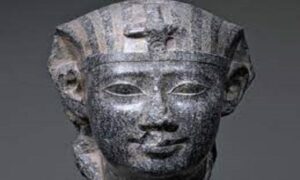Doctor Curmudgeon® Gone But Not Forgotten
By Diane Batshaw Eisman, M.D. FAAP Doctor Eisman is in Family Practice in Aventura, Florida with her partner, Dr. Eugene Eisman, an internist/cardiologist
Once upon a time in 1953, a wonderful author by the name of Ray Bradbury published a book. Its title was Fahrenheit 451. This superbly written novel took place in a dystopian society where books were outlawed. “Firemen” sought them out and burned them. In his novel, the author conceived of Fahrenheit 451 as “the temperature at which book-paper catches fire, and burns.”
His book came to my mind as I thought about the burning of the Library of Alexandria.
About eighteen centuries ago…even before the internet; there existed a great storehouse of knowledge.
It was Ptolemy II who conceived of an immense center of learning. He thought of a place where scholars could study and meet together. And so, he built the Library of Alexandria in Egypt.
Between forty thousand to four hundred thousand scrolls were said to have found a home in Ptolemy’s library.
Myth or truth, the Library of Alexandria has come down through the centuries as a place where educators and scholars worked together simply to further knowledge and discourse.
And then as the story, or history or legend goes, along came Julius Caesar.
He was at war with his rival, Pompey. Caesar found himself in a difficult situation at the port of Alexandria. He was surrounded on the land and in the sea around the city.
So what else could Caesar do? He set fire to the fleet in the harbor. Of course it spread into the city and…burned down the great library of Alexandria.
From the Greek Reporter, “According to Plutarch, a Greek historian from the first Century CE: ‘Caesar was forced to repel the danger by using fire, which spread from the dockyards and destroyed the Great Library.’”
Of course controversy abounds about this center of learning.
Was the famous Library of Alexandria just a myth?
Was there really one great center?
Were there several libraries spread out through the city?
It is known that the city of Alexandria was burned accidentally and Caesar himself wrote the account of this.
It has also been written that warehouses near the port containing scrolls had been annihilated in the conflagration.
I can never forget Ray Bradbury’s Fahrenheit 451….the destruction of knowledge.
Myth or truth, I cannot forget the stories of the great Library of Alexandria.
And today, in Alexandria, there stands a new library of Alexandria. This center of learning has been dedicated to the kind of scholarship and community that the first Library of Alexandria was known for.
ZD Net describes this new center: The New Library of Alexandria, Bibliotheca Alexandrina, is therefore dedicated to “recapturing the spirit of openness and scholarship” of the original library, containing a general library – which can hold up to a million books – and six specialized libraries. Bibliotheca Alexandrina is also home to four museums, a copy of the Internet Archive, thirteen academic research centres and more.”
As Jacques Derrida wrote in Archive Fever, “There is no political power without power over the archive.”
Dr. Curmudgeon suggests “Bitter Medicine”, Dr. Eugene Eisman’s story of his experiences–from the humorous to the intense—as a young army doctor serving in the Vietnam War.
Bitter Medicine by Eugene H. Eisman, M.D. –on Amazon
Doctor Curmudgeon® is Diane Batshaw Eisman, M.D., a physician-satirist. This column originally appeared on SERMO, the leading global social network for doctors.
SERMO www.sermo.com
Click Here to Order Boxing Interviews Of A Lifetime By “Bad” Brad Berkwitt


